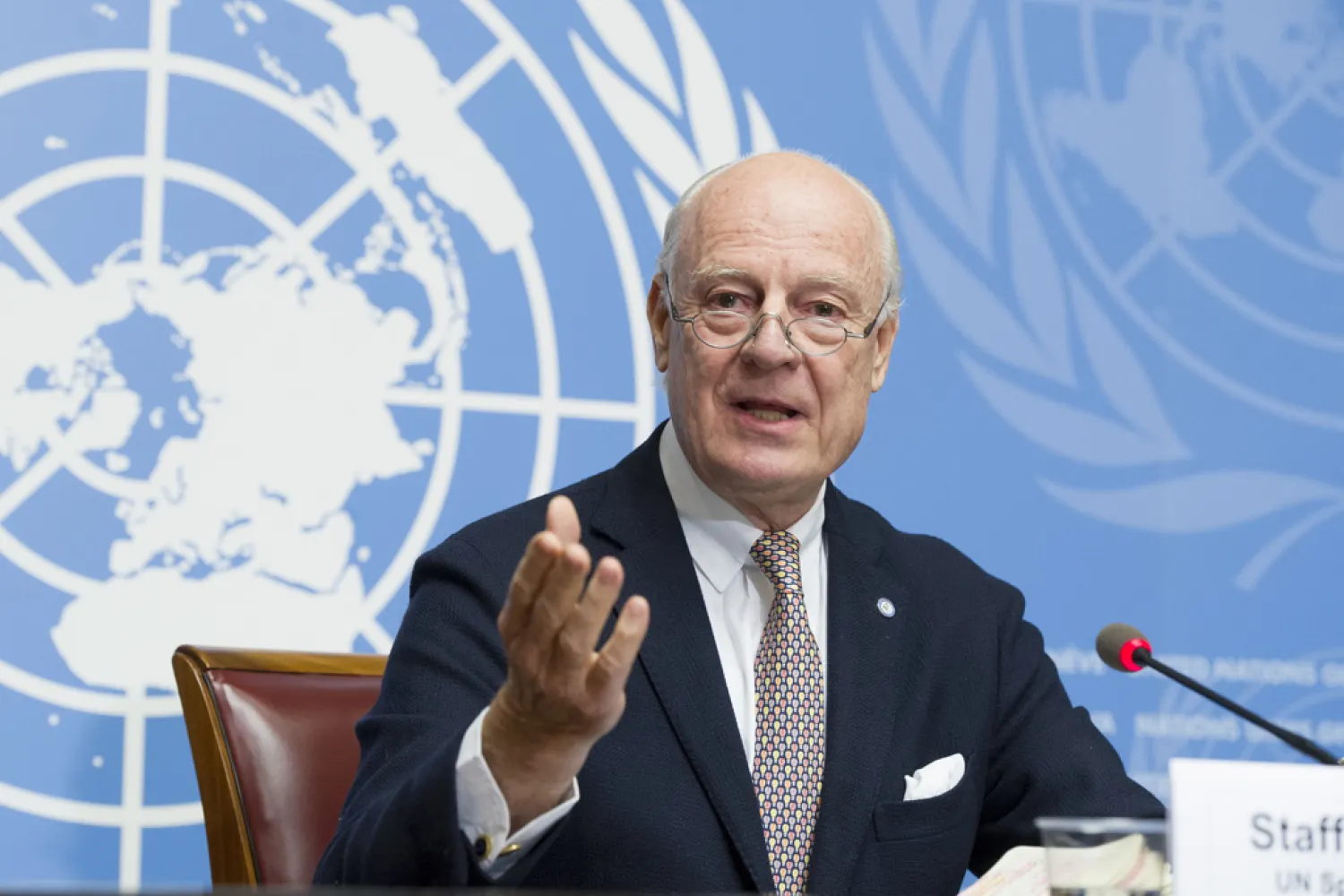UN Special Envoy for Syria Staffan de Mistura pushed on Thursday both the regime and opposition delegations to enter into the core subject of negotiations, and handed them a 12-item paper including his concept for the future of Syria.
A copy of the envoy’s paper, which was received by Asharq Al-Awsat, stipulates that Syria is a “non-sectarian state” under UNSC Resolution 2254, and asserts the need that “local administrative representatives” be present in the country next to the work of the “National Army,” and the “Security Apparatus in accordance with the constitution.”
The paper also confirms the respect of the “high value of the Syrian community, the national identity and the history of diversity and ethics brought by all religions, civilizations and cultures in Syria.”
The High Negotiations Committee, which also includes the Cairo and Moscow platforms, later presented to de Mistura a response to his paper, including 12 items.
It was remarkable that the HNC removed from the term “Syrian Arab Republic,” the world “Arab” and replace it by only “Syria,” in addition to approving the decentralization principle, the rights of Kurds and other entities.
The opposition’s paper also suggested introducing reforms to the “national army” body and to restructure the security apparatus.
De Mistura plans to issue a joint paper between the two delegations at the end of the eighth Geneva intra-Syrian talks in mid-December, including the principles of a political solution to Syria that emanate from the spirit of Resolution 2254 and based on the previous drafts of negotiations, that started in the spring of 2016.
Diplomatic sources told Asharq Al-Awsat that discussions on Thursday tackled the name of the state: the UN paper suggested that it remains the “Syrian Arab Republic,” while the opposition delegation said it should become “Syria.”
The discussions also revealed a dispute between the two choices of “local administrations” or “decentralization,” and another deep argument concerning the role of the Army and the need to reform it, to restructure the body of the security apparatus and to fight terrorism.
On Thursday, de Mistura held indirect but simultaneous talks with the two delegations in two separate rooms, after the government delegation headed by Bashar al-Jaafari refused to engage in direct talks with the opposition.
“There has been now a moment of truth; we need to find a political solution,” de Mistura said, adding that there should be no preconditions heading into the current round of discussions aimed at resolving the over six-year-long Syrian conflict that has resulted in immense human suffering.









